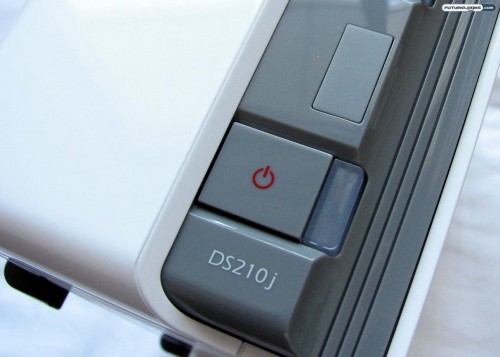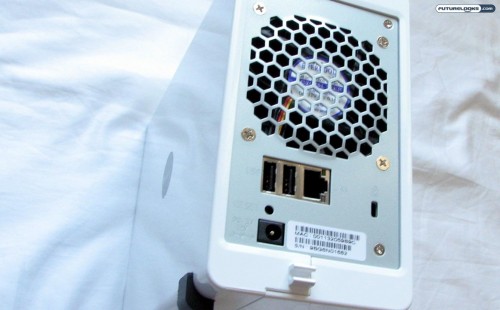
If you’re looking for something much more versatile than a regular external hard drive, you might want to consider paying the premium to invest in some network attached storage. While buying a NAS and the necessary hard drives will be more expensive, the increased versatility and functionality are worth it. With the price of network attached storage devices as well as large hard drives coming down in price in the last couple years, the uptake of such devices have grown dramatically.
While there are many high end offerings, one of the more recent budget-minded offerings is the Synology DS210j. Despite its lower price, it still comes with all the power that usually accompanies the Synology name.
Features and Specifications
Also available in single-drive (DS110j) and four-drive (DS410j) configurations, the Synology DS210j approaches the more affordable end of the market by having slightly less horsepower. That’s what the “j” in its name represents, as opposed to the more premium product offerings like the Synology DS207+. The “+” in that name signifies its higher-end spec sheet.
With the Synology DS210j, you get the following features and specifications:
- CPU Frequency: 800MHz
- Memory Bus: 16bit@DDR800
- Memory: 128MB
- Internal HDD: 3.5″ SATA(II) X2 or 2.5″ SATA/SSD X2 (with the Disk Holder)
- Max Internal Capacity: 4TB (2x 2TB hard drives)
- Size (HxWxD): 161mm X 88mm X 218mm
- External HDD Interface: USB 2.0 port X3
- Weight: 0.98kg
- LAN: Gigabit X1
- Noise Level (fan-only): 24dB(A)
- AC Input Power Voltage: 100V to 240V
- Power Frequency: 50Hz to 60Hz, Single Phase
- Power Consumption: 25W (Access); 10W (HDD Hibernation)
- Operating Temperature: 5°C to 35°C (40°F to 95°F)
- Storage Temperature: -10°C to 70°C (15°F to 155°F)
- Relative Humidity: 5% to 95%RH
- Maximum Operating Altitude: 10,000 feet
- Certification: FCC Class B, CE Class B, BSMI Class B
The more expensive NAS enclosures from Synology typically have faster processors and more RAM than the DS210j, but that’s the sacrifice you pay to achieve the lower price point. In the big scheme of things, the setup is perfect for most home users with just a handful of users connecting to the device at a time. The device also supports SSD drives with adapters if you’re interested in the fastest possible performance. It’s also Mac friendly and works properly with Mac OSX’s Time Machine Backup service.
What’s in the Box?

As can be expected with most network attached storage devices, the Synology DS210j does not come with any hard drives in the box. You’ll need to supply those (or solid state drives if you prefer) on your own. By default, this NAS device will accept a pair of 3.5″ drives. Alternatively, you can buy the optional 2.5″ disk holder adapters so you can use notebook or SSD drives. I’d recommend against going with either, because you’ll get poorer performance at a higher price point with the notebook drives. With SSDs, you’ll get maximum performance, but a very limited amount of storage.
Aside from the enclosure itself, you shouldn’t expect much in the box. You get the power supply, the power cable, a LAN cable, some mounting screws, basic supporting documentation, and the installation CD.
Ports, Jacks, and Inputs

In addition to the single USB port on the front of the device, the Synology DS210j also has a pair of USB ports in the back. This can make transferring files a little easier than doing it over the network, but it would have been nice to see an eSATA port for even faster transfers. There is the Gigabit LAN port, of course, as well as the spot to plug in the power adapter.
